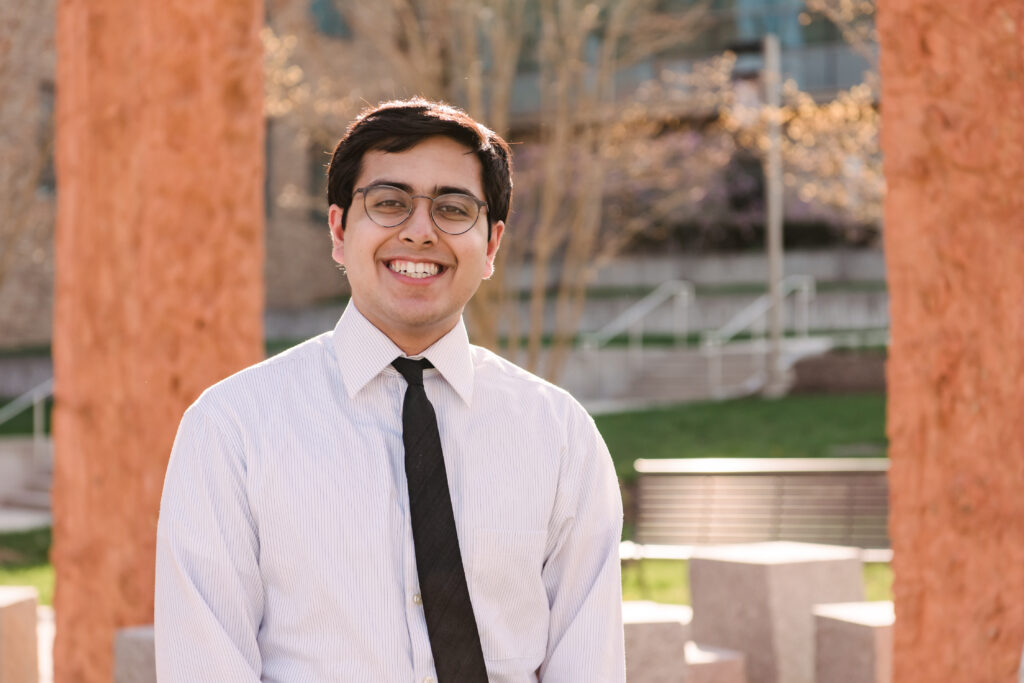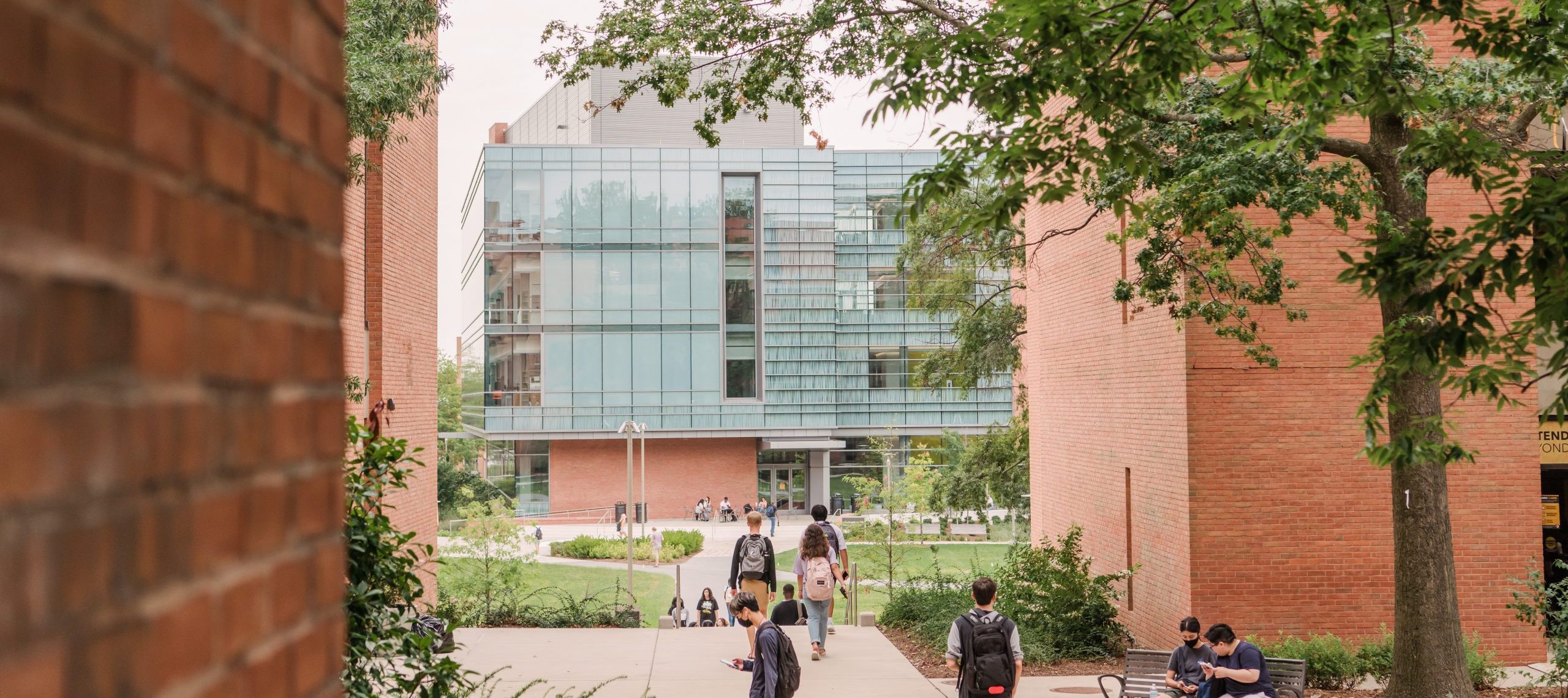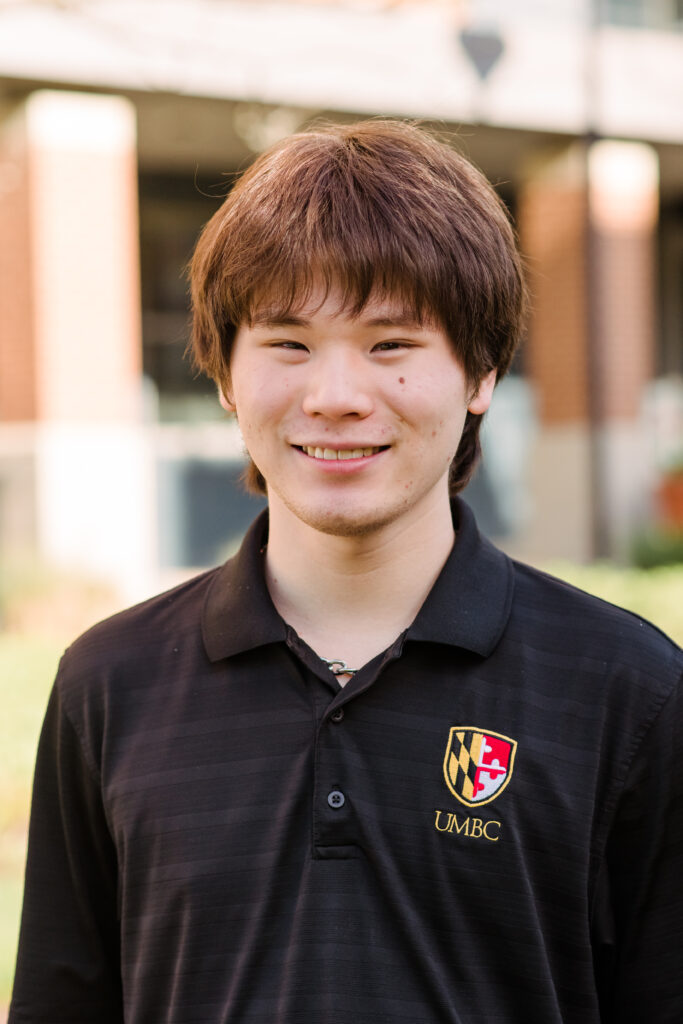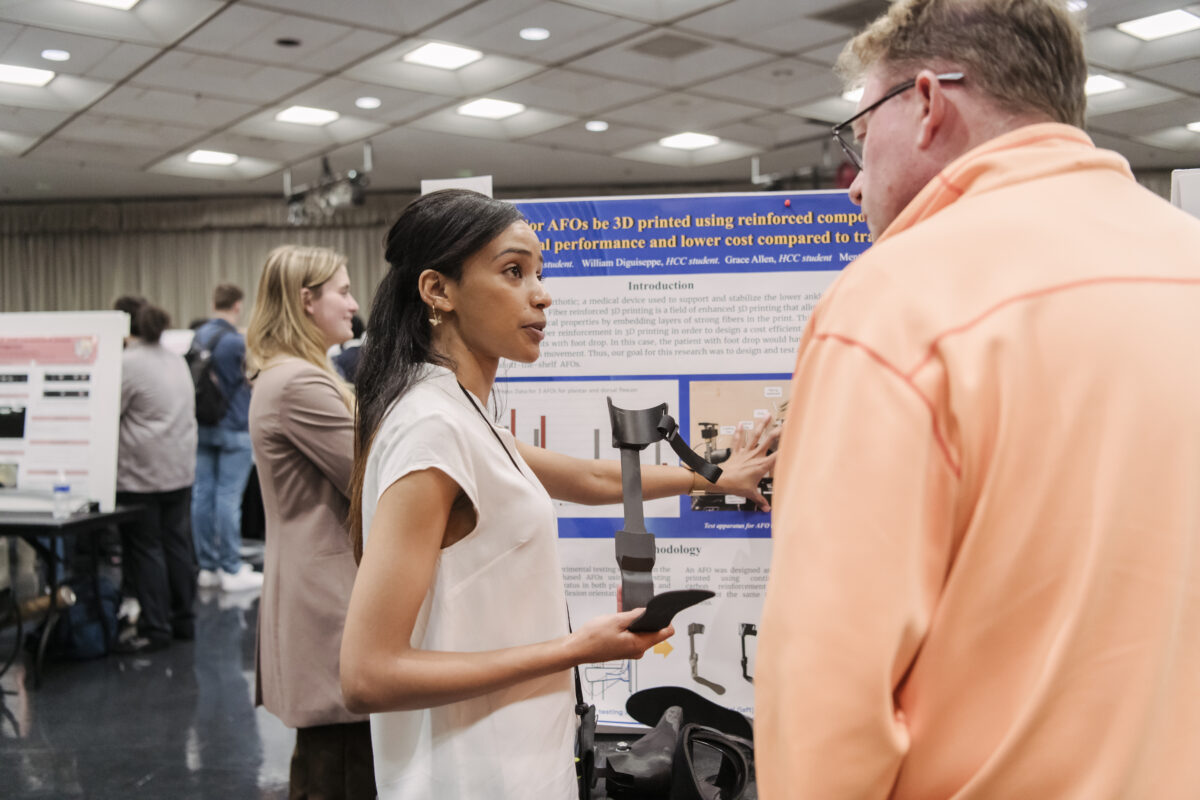Last weekend, nearly 1,400 students from 90 institutions across 26 countries, including Egypt, Switzerland, and Ethiopia, participated in hackUMBC’s annual fall hackathon. The 36-hour event encouraged students to collaborate with each other to develop projects addressing a range of real-world challenges.
Participants primarily connected with each other online, through Discord. UMBC students also had the opportunity to attend a limited number of in-person events, with social distancing and masking in place. They vied for a total of $7,300 in prize money through awards from Best Hack overall to Best Financial Hack, Best Data Driven Application, Best Use of Google Cloud, and more.

HackUMBC President Karan Luthria ‘22, bioinformatics, was pleased with the event’s ability to attract both virtual and in-person participants from around the world. “It’s challenging to engage with virtual participants, but we did it successfully,” he says. This includes many first-time hackers curious to connect with a like-minded community, Luthria notes.
Inspired hacks
UMBC students participated in each of the three winning teams at the hackathon. The first place team developed Babel Fish, which allows people to use their phones to translate voice recordings into audio recordings in other languages. John Hair ‘24, computer engineering; Nolan Smith ‘24, mechanical engineering; Gerald Watson II ‘24, computer science; and Nyle Pope ‘24, computer science were inspired by a device in The Hitchhiker’s Guide to the Galaxy. They decided to try to create a simple version of this technology during the hackathon.
The hack that received second place is a social media app called Adventure Addict. The app allows people to create interactive stories, where readers can choose the path that the story takes at various points. According to a video overview, Adventure Addict “creates a connection between the author and the reader that is unparalleled.” As readers consume and interact more with stories and content, the app recommends additional authors, posts, and stories that the reader might find of interest. The Adventure Addict team includes UMBC student David House ‘16, psychology, M.P.S. ‘21, data science, as well as a Maryland high school student, and students studying at universities in India and Canada.

In third place was a team that developed Status Bar, a device that culls through the day’s headlines and displays top highlights on a table top screen. The Status Bar can also provide a range of other highlights of value to the user, from weather updates to the prices of popular video games, in real time. UMBC students Tamoor Hamid, Ezekiel Ajayi, Avi Singh, Craig Stone, all studying computer engineering and graduating in 2022, developed Status Bar.
Awards were provided through robust sponsorship from over a dozen companies, including diamond sponsors T. Rowe Price, Northrop Grumman, and General Dynamics Mission Systems.
Community connections
Beyond the top three prize winners, several notable projects focused on ideas for improving the UMBC community. For example, Retriever Helper provides an interactive map allowing users to more easily find locations (specific rooms, floors, and buildings) on UMBC’s campus, to view the operating hours of UMBC’s dining options, and to read a feed from UMBC’s student newspaper, The Retriever.
Kristina Eyombo ‘25, computer science, and Dan Hyatt ‘25, bioinformatics, collaborated on the project. Eyombo learned all the JavaScript, HTML, and CSS required to execute the project within that weekend.
“Something we aim for at hackUMBC is to welcome all first-time hackers, regardless of major or background, to bring out their creativity to find solutions to real-world problems,” Luthria shares.
Another UMBC-focused project included Fetch&Retrieve, which hopes to decrease waste by helping students give away things they no longer need.
Whether they produce projects geared toward UMBC or broader issues, “It is always amazing to see students from across UMBC and the globe come together over a weekend for a time of learning, collaborating, and brainstorming,” says Luthria. “I hope hackUMBC inspires more students to be a part of the hackathon community and continue to spend their weekends bringing ideas to life.”
Read more about past hackathon events.
Banner image: The Interdisciplinary Life Sciences Building. Photo by Marlayna Demond ’11 for UMBC.
Tags: COEIT, CSEE, DataScience, MechE, Psychology





